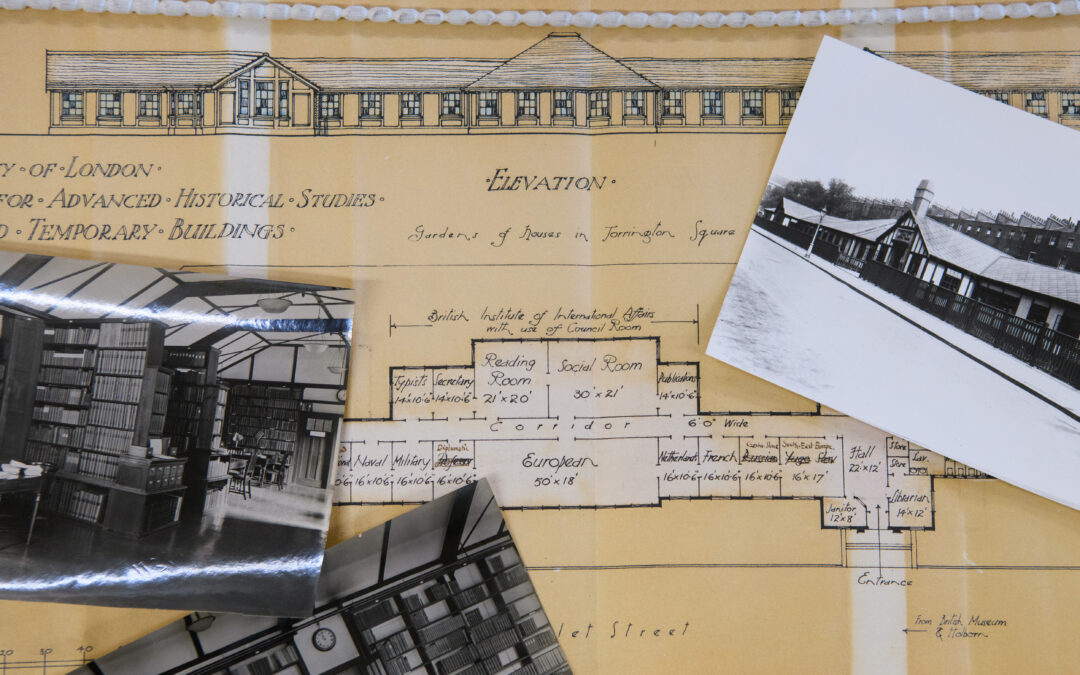By Claire Langhamer
I started my role as Director of the IHR in October, and already the Institute feels like home. As a historian of twentieth century Britain, there is something particularly lovely about working in Senate House, with its wartime history, its 1930s aesthetic, and its apparently endless supply of hat stands. The first glimpse of the building as I walk over from St Pancras Station remains a highlight of my working day and it was an early privilege to be taken up to the top of the tower one late afternoon to look over London as the sun set.
Of course the Institute is much more than a building, no matter how iconic that building might be. The real joy of my role lies in the people it allows me to work with, both within Senate House and beyond it. Back in the autumn I was immediately impressed by the commitment of the Institute staff and its communities to the well-being and future development of History. I was also struck by a determination to strengthen the Institute’s reach and significance as a national centre. At a time where history—alongside other arts and humanities subjects—needs strongly-voiced advocacy, my job is to harness that energy to ensure that we speak with, and work for, historians right across the UK.
I was lucky enough to join the Institute at a celebratory moment, notwithstanding, of course, the continuing global pandemic. The IHR’s centenary year has seen us collaborate with universities, museums, archives, artists and musicians amongst many others with an interest in the past. An early highlight for me was our ‘Troubling Anniversaries’ conference organised with colleagues at Queens University Belfast, and I am very much looking forward to visiting Swansea in May to participate in a collaborative conference on ‘Public History and the Archive for the Next Century’. A focus on co-design and co-production has underpinned much of this year’s work, whether in our national centenary events, our new partnership seminars, the long-established Victoria County History project, the Library’s History Day—which brought together 56 different History-focused organisations and archives—or in the work of History & Policy, which consistently demonstrates the need to understand the past in re-making the present. Our end of centenary event—which we are busy planning for July 2022—will be a real festival of history and we hope to involve as many historians as possible in its combination of virtual and in-person events.
One of the challenges of my first three months has been getting to grips with the needs of the diverse communities that the Institute currently serves, and out of which it has developed, whilst also mobilising our inclusive histories agenda. Our library, our digital resources (including British History Online and the Bibliography of British and Irish History), as well as our seminars, are integral to our community-building. It has been a real eye-opener to see the tenacity with which colleagues have maintained services and adapted formats in difficult and constantly shifting times. The spaces that History and historians inhabit have changed markedly because of Covid, and I know I’m not alone in welcoming the global reach of our online seminars and the ways that a digital space facilitates the involvement of new participants. A pressing concern is how to maintain the benefits of the move online—the widening of access and democratisation of form—while facilitating a return to the easy sociability and relaxed intellectual exchange which is an invaluable aspect of face to face meetings.
The Institute is, of course, home to a diverse community of scholars and practitioners, chief amongst them our Fellows. It was a real privilege to meet each of our new Junior Fellows in the autumn to discuss their projects. They are an outstanding cohort whose interests range from ‘Affectivity’ and Religious Orders in the Middle Ages, through Postal Transport in the Colonial Andes, to Sex and Birth Strikes as a Feminist Tactic. The Fellows Seminars have, by necessity, been running online and the intellectual generosity with which all of our Fellows have approached these events has been genuinely delightful. Support for those at the beginning of their careers is a crucial aspect of our work and so it is gratifying that our Centenary appeal for internship funding has raised just shy of £10,000. I would like to thank all of our donors and I look forward to welcoming a new cohort of interns later in the year.
My own career began in another lovely mid-century building at Sussex University, where I worked very happily for 23 years. I expected the process of moving jobs after so long to be a challenge; in fact, the experience of joining the ‘historical laboratory’—as Professor Pollard conceptualised it in 1921—has been unremittingly energising, engaging, and affirming.


